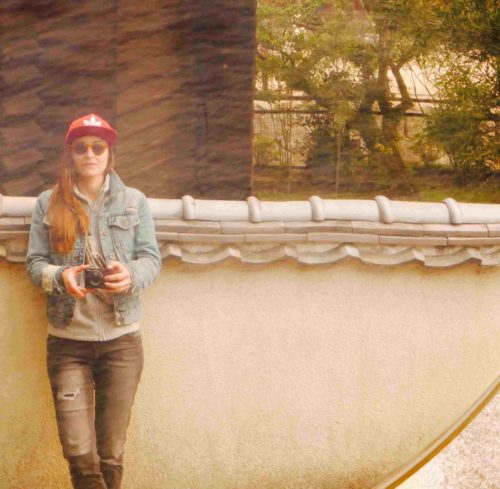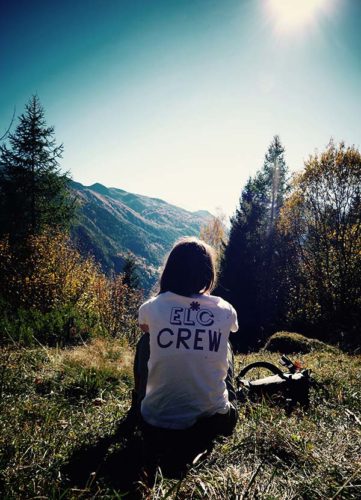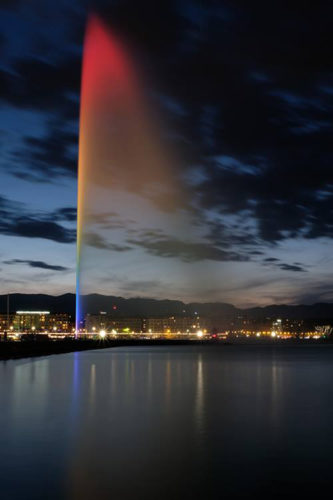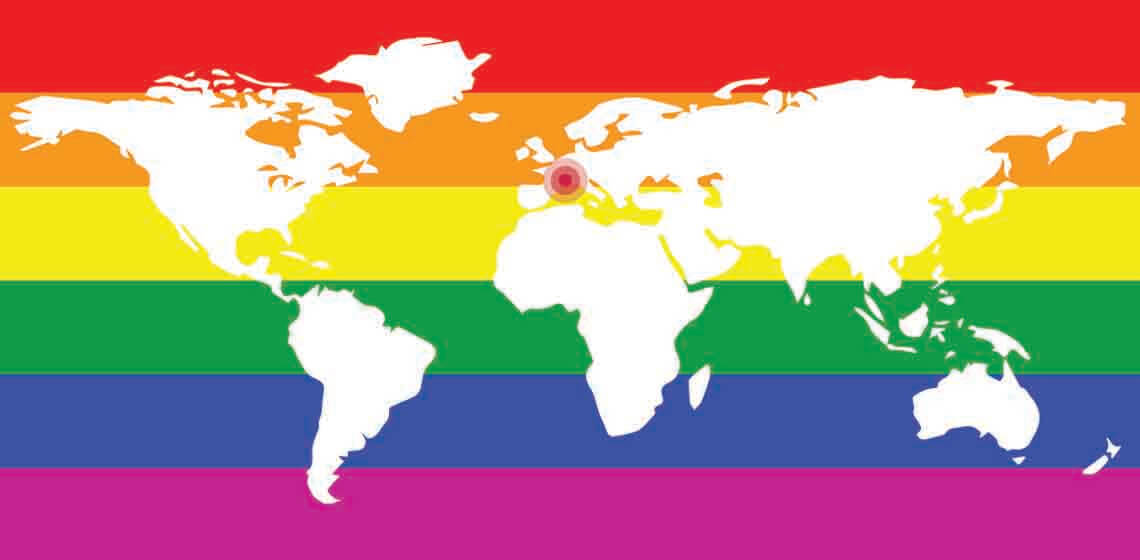The last piece of our interview series in 2018 takes us to the snowy lands of Switzerland. Best enjoyed next to the fireplace, with a cup of hot chocolate. Please welcome Leila.
Hey, Leila. Can you tell us a little bit about yourself first?
My name is Leila Lohman; I was born in Portland, Oregon. My mom, who was from the Netherlands and Switzerland and had been visiting her older sister living in the US at that time, found it a good idea to marry my dad, a nice American boy, whose family was originally from Poland. I came to Europe when I was 3 and so I was raised around Geneva, Switzerland. I share this segment of my personal history because my origins explain both my mixed identity - neither fully American, nor Swiss; neither Protestant nor fully Jewish, etc. - and also why I travel and move around so much as an adult.
I got involved in activism in 2006 when I founded Geneva University’s LGBTIQ+ student organization: Think Out!, and later I went on co-founding the Geneva Federation of LGBT Organizations as well. Even if I have been working on other socio-political issues since 2006 and in several different countries, I have remained connected to LGBTIQ+ issues all along. Most recently, I have had the privilege of working alongside other lesbian activists in Europe and Central Asia organizing the European Lesbian* Conference (which is to be held in April 2019), and this has also led me to get involved in the organization of the Global Feminist LBQ Women’s Conference as well (July 2019)!
My next destination is Brussels, where I will shortly be taking up a job with an NGO focusing on sexual and reproductive health and rights. When I’m not working, I’m travelling and taking pictures.

It’s a pleasure to interview such a diverse person. Today we would be most interested about your experiences in Switzerland. Can you give us a general idea about the LGBTQ+ situation over there?
In terms of social acceptance and visibility, as in many places there is a big difference between the cities and the rural parts of Switzerland. On the one hand, the smaller the town, the less likely there will be any LGBTIQ+ friendly bars or cultural events. On the other hand, the bigger cities (Geneva, Bern, Lausanne, Zürich, Basel) usually have monthly LGBTIQ+ parties and bars running all-year round. Geneva also hosts a yearly LGBTIQ+ film festival.
On top of the rural vs. urban distinction, in certain Swiss cantons you will find that religion plays a rather important role, which will sometimes translate into lower degrees of tolerance towards members of the LGBTIQ+ community and certainly into less visibility. For example, I have been staying in a core Catholic canton in the past months for study purposes, and when I first came here two things happened: I was told to shut down my LinkedIn profile whilst looking for a place to stay, and in another case a landlord would want nothing to do with me because of my so-called ‘propaganda’ work!
Overall, social acceptance has increased; for example, LGBTIQ+ issues are now regularly addressed in mainstream cultural festivals, and public displays of affection between LGBTIQ+ couples are more visible than, say, 15 years ago. At the same time, in terms of legal equality, there still remains work to do, in marriage, access to IVF for lesbians, and joint adoption by same-sex couples, to say some examples.

Let’s talk a bit about Geneva. What’s the situation there?
Two years ago, I was sitting on the stairs of the University of Geneva; I went there to reminisce. I remember thinking how happy I was to see so many queer-looking students walk by. Between the ones with rainbow tote bags, and the others with hair like Emma from Blue is the Warmest Color, I felt exhilarated to conclude that in this space people could feel safe to be themselves.
Without a doubt, this visible progress around Geneva is partly due to the tireless awareness-raising work done by LGBTIQ+ activists that have spent organizing yearly conferences on improving the situation for LGBTIQ+ students in schools, and in the workplace over the last decade. There is also a strong rainbow family movement in Switzerland. Progress is also being made thanks to public figures coming out such as Zürich mayor Corine Mauch and Swiss national soccer team captain Laura Dickenmann.
Sounds promising. How’s social life if you are a lesbian* in Geneva?
The organization 360°, located in Geneva, publishes a monthly magazine where they always advertise parties in each of the big cities in the country. They also refer to LGBTIQ+ friendly shops and bars. According to the organization, Geneva currently has 62 LGBTIQ+ friendly locations including bars, shops, associations, wellness and sports centers, etc. As for specifically lesbian* places, a few years ago, Livresse, a very cool bar and book store was opened by two lesbians, which has been a big success since it first opened.
A national Pride parade takes place in a different city each year, and in 2019 it will be going to Geneva. This is really exciting because since it was last held here, many developments have happened and there is much more cohesion between the city and international organizations around LGBTIQ+ issues now.
In the bigger cities of the country, since a few years there has been a close collaboration between the local authorities and the local LGBTIQ+ associations around key events such as Coming Out Day (11 October) and the International Day Against Homophobia, Transphobia & Biphobia (17 May). Around these key dates for the LGBTIQ+ community, you will find awareness posters around the city and conferences taking place, among other things. In Geneva, for IDAHOTB 2018, the city illuminated its landmark, the Jet d’Eau, in rainbow color at night.

As my last question, you know what’s coming. A coming out story. What do you feel like sharing?
After I had come out to my mother and father, I came out to my brother. His reaction was like this:
My brother: Leila, I’m disappointed.
Me: Why?
My brother: Because you came out to me last and that makes me sad.
Me: Well, you were the third person on a long list…
The lesson of the story is that you may realize that some of the people who you fear the most coming out to will wonder why you didn’t do it sooner or why you did not come to them first.

